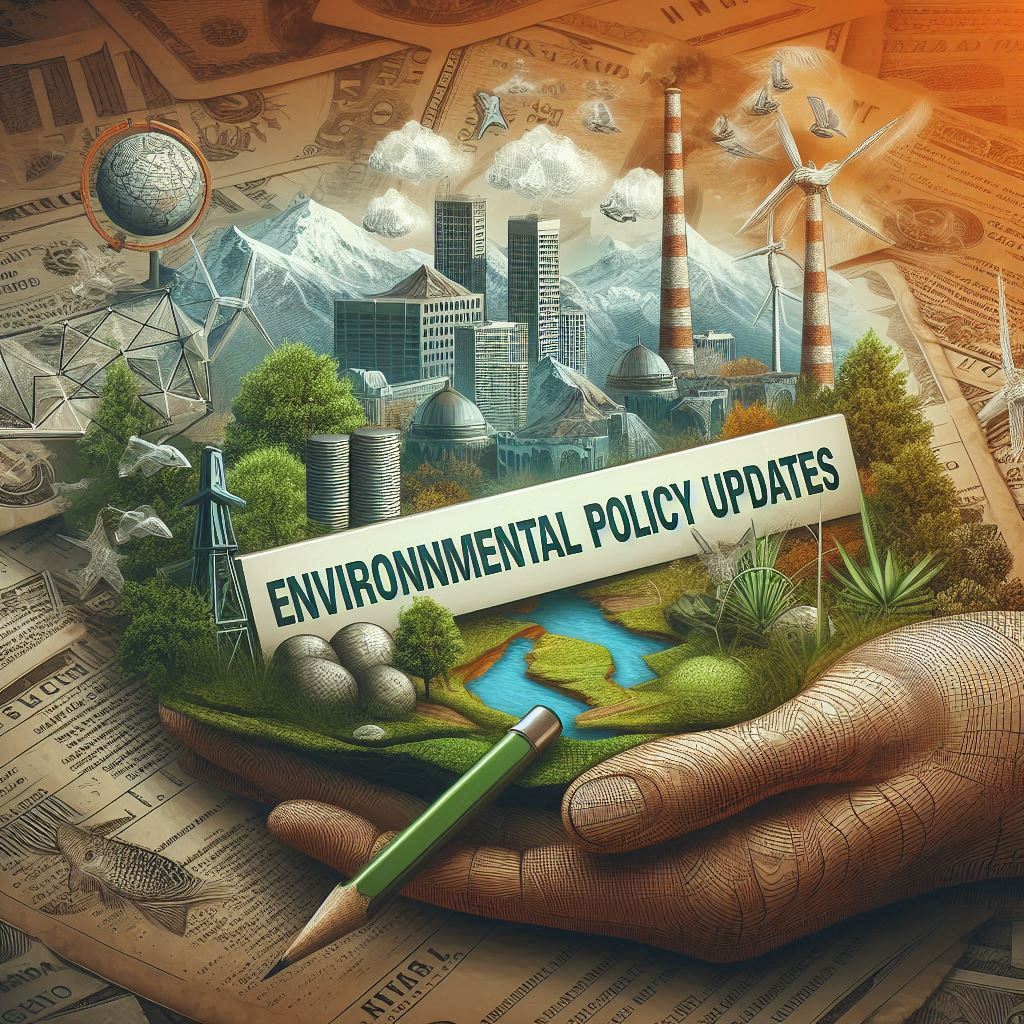Environmental Policy Updates: Navigating the Changing Landscape
As the consequences of climate change become increasingly evident, governments worldwide are taking action to address pressing environmental issues. In this blog post, we’ll explore recent policy updates and their potential impact on businesses and citizens.
Spotlight on Recent Regulations
European Union’s Deforestation-Free Supply Chain Regulations
One noteworthy development is the European Union’s upcoming deforestation-free supply chain regulations. Set to take effect in 2025, these regulations will require companies operating in the EU to ensure their products are not linked to deforestation anywhere in the world. This policy aims to tackle the global issue of deforestation, a major driver of greenhouse gas emissions and biodiversity loss.
Local Revisions to Environmental Impact Assessment Procedures
Closer to home India, revisions to environmental impact assessment procedures have been making headlines. These changes aim to streamline the process while ensuring adequate environmental assessments are conducted for new development projects. The goal is to strike a balance between economic development and environmental protection.
Stricter Air Quality Standards in the United States
The Environmental Protection Agency (EPA) recently announced updates to air quality standards for ozone and particulate matter in the United States. Stricter regulations are crucial for protecting public health, especially vulnerable populations disproportionately affected by respiratory ailments.
Navigating Business Impacts
New environmental regulations pose both challenges and opportunities for businesses. Industries with high pollution levels may face increased compliance costs. However, these regulations also encourage innovation in clean technologies and sustainable practices. Companies embracing sustainability can gain a competitive edge.
A recent study found that environmentally responsible companies tend to outperform their less sustainable counterparts in the long run. Investing in environmental compliance and sustainability initiatives can be a sound business decision.
Ripple Effect on Citizens
Environmental policy affects everyone. Stricter regulations lead to cleaner air and water, benefiting public health. Additionally, these policies promote green spaces and renewable energy sources, improving our quality of life and mitigating climate change effects.
The shift toward a greener economy creates new job opportunities in the clean energy sector, fostering workforce development and economic growth.
Challenges faced by Smaller Businesses
Smaller businesses encounter several challenges due to environmental regulations:
- Compliance Costs: Meeting regulatory requirements often involves costs related to equipment upgrades, monitoring, and paperwork. Smaller businesses may struggle to allocate resources for these expenses.
- Complexity: Environmental regulations can be intricate, requiring specialized knowledge. Smaller businesses may lack the expertise or financial capacity to navigate complex compliance processes effectively.
- Competitiveness: Stricter regulations can disproportionately affect smaller players. Larger corporations may have the financial muscle to adapt, while smaller businesses may find it harder to compete.
- Innovation Pressure: Regulations encourage sustainable practices and cleaner technologies. Smaller businesses must innovate to comply, which can be challenging without sufficient R&D resources.
- Administrative Burden: Compliance involves reporting, record-keeping, and administrative tasks. Smaller businesses may struggle with the paperwork, diverting attention from core operations.
- Adaptation Time: Adjusting to new regulations takes time. Smaller businesses may face disruptions during this transition, impacting productivity and revenue.


